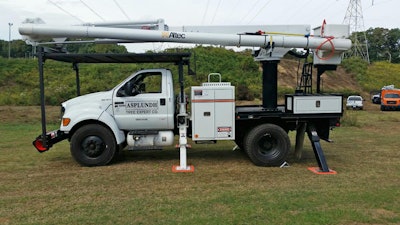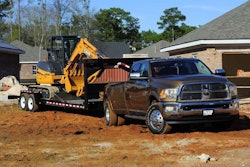
Is Asplundh going out on limb by being one of the first in its industry to adopt propane autogas for some of the medium duty trucks in its fleet? Company representatives don’t think so.
“We were searching for a cost-effective alternative fuel that provides an adequate refueling infrastructure and also meets our environmental initiatives,” says John Talbot, director of fleet services for Asplundh Tree Expert Co. “Propane autogas was our answer.”
Currently, Asplundh has two Ford F-650 trucks powered by Roush CleanTech propane autogas fuel systems. The most complex unit is a bucket truck equipped with a 58-foot aerial lift that is operating in the Charlotte area, pruning trees away from power lines. An Asplundh-affiliated company also operates a chip dump truck in California where emissions regulations are stringent.
Refueling hasn’t been a problem.
“When you look at a map of all alternative fuel stations, there are lots of dots for autogas,” says Talbot.
Asplundh currently refuels their vehicles at public stations, but may consider using mobile refueling services in the future, the company notes.
Another advantage of propane autogas is the ability to mount the tanks under the cab, which maintains a clean frame rail behind the cab. For Asplundh, this means there is enough room for compartments to be mounted to hold the tools and other equipment needed for vegetation management services.
“Autogas is an affordable, abundant American fuel that allows companies like Asplundh to lower their operating costs while helping to preserve the environment in which they work,” says Joe Thompson, president of ROUSH CleanTech.
A North Carolina State University grant for Clean Fuel Advanced Technology helped fund one of Asplundh’s vehicles.










